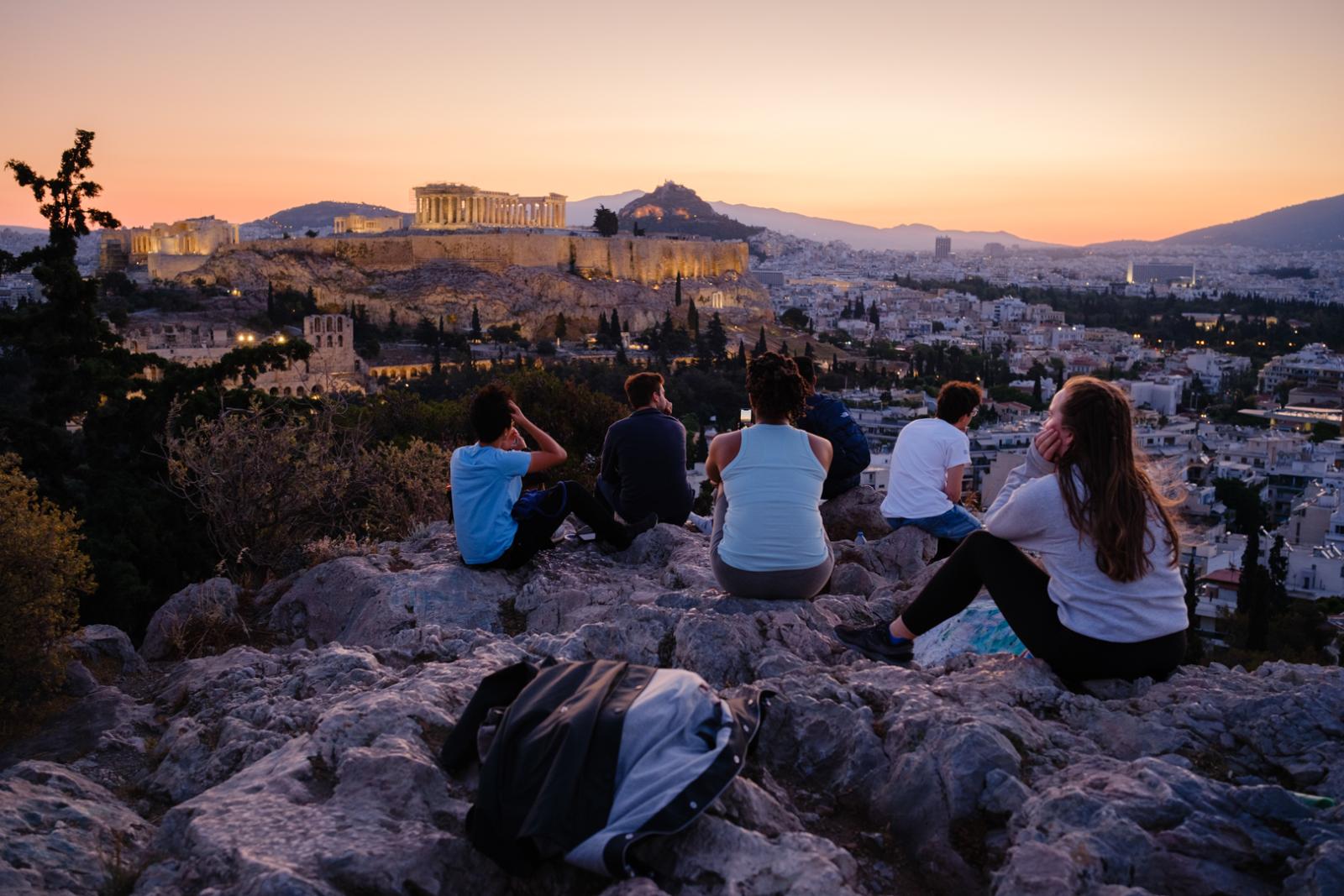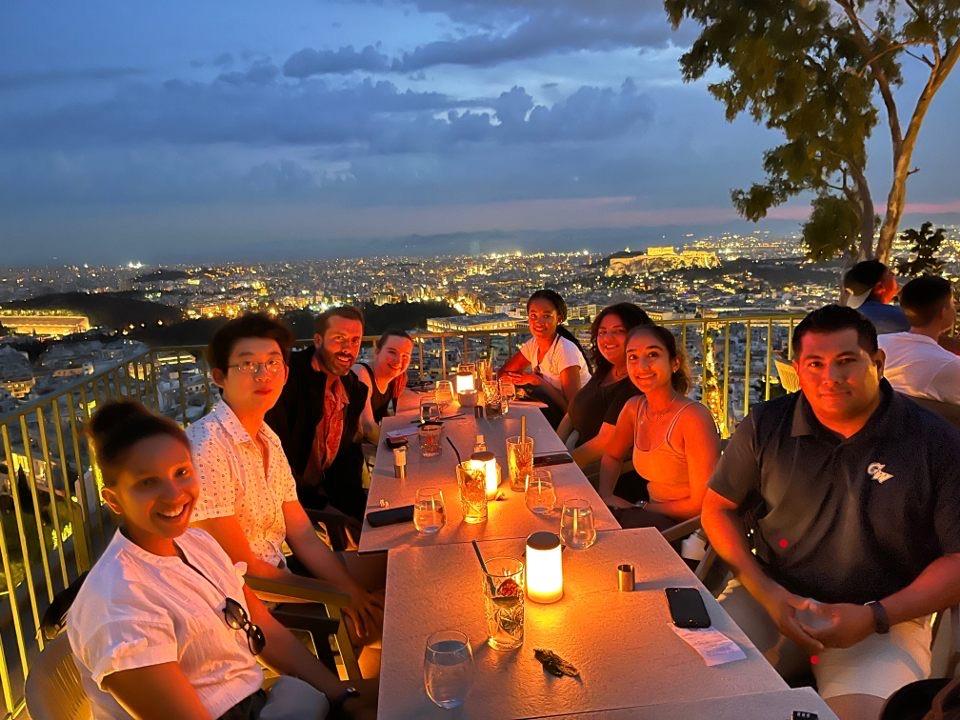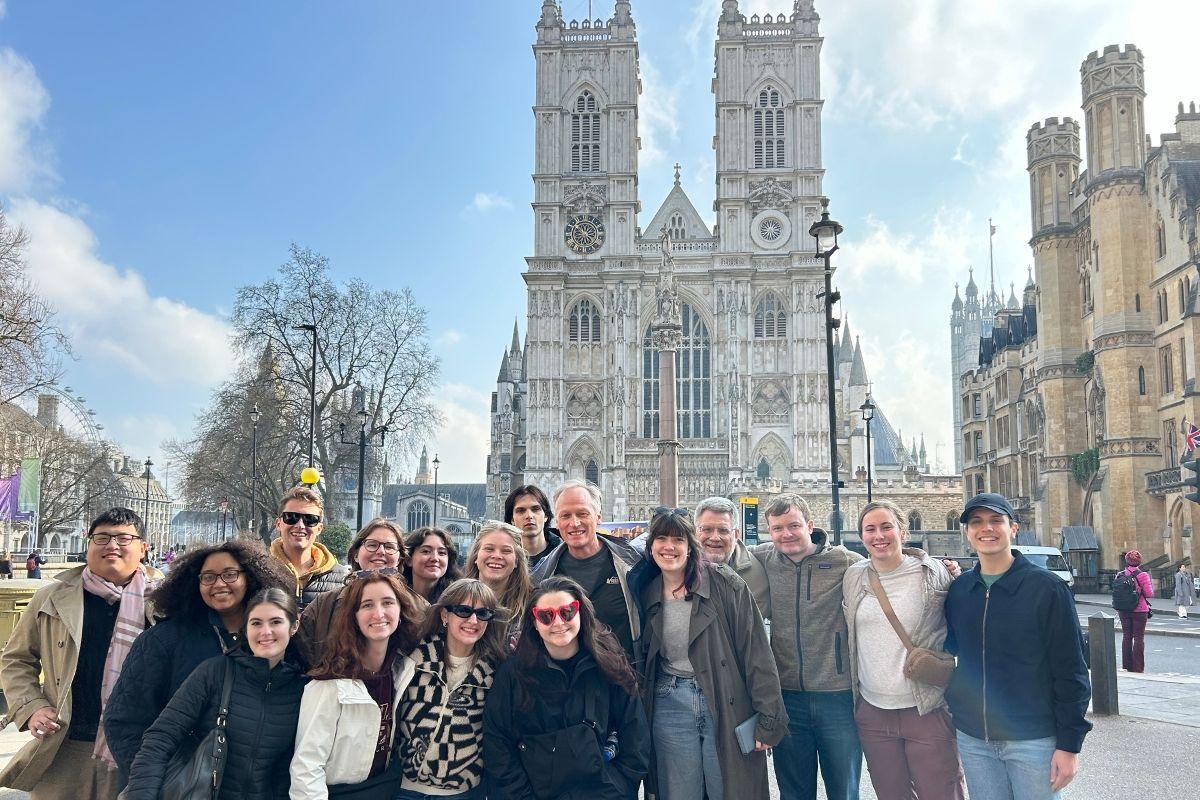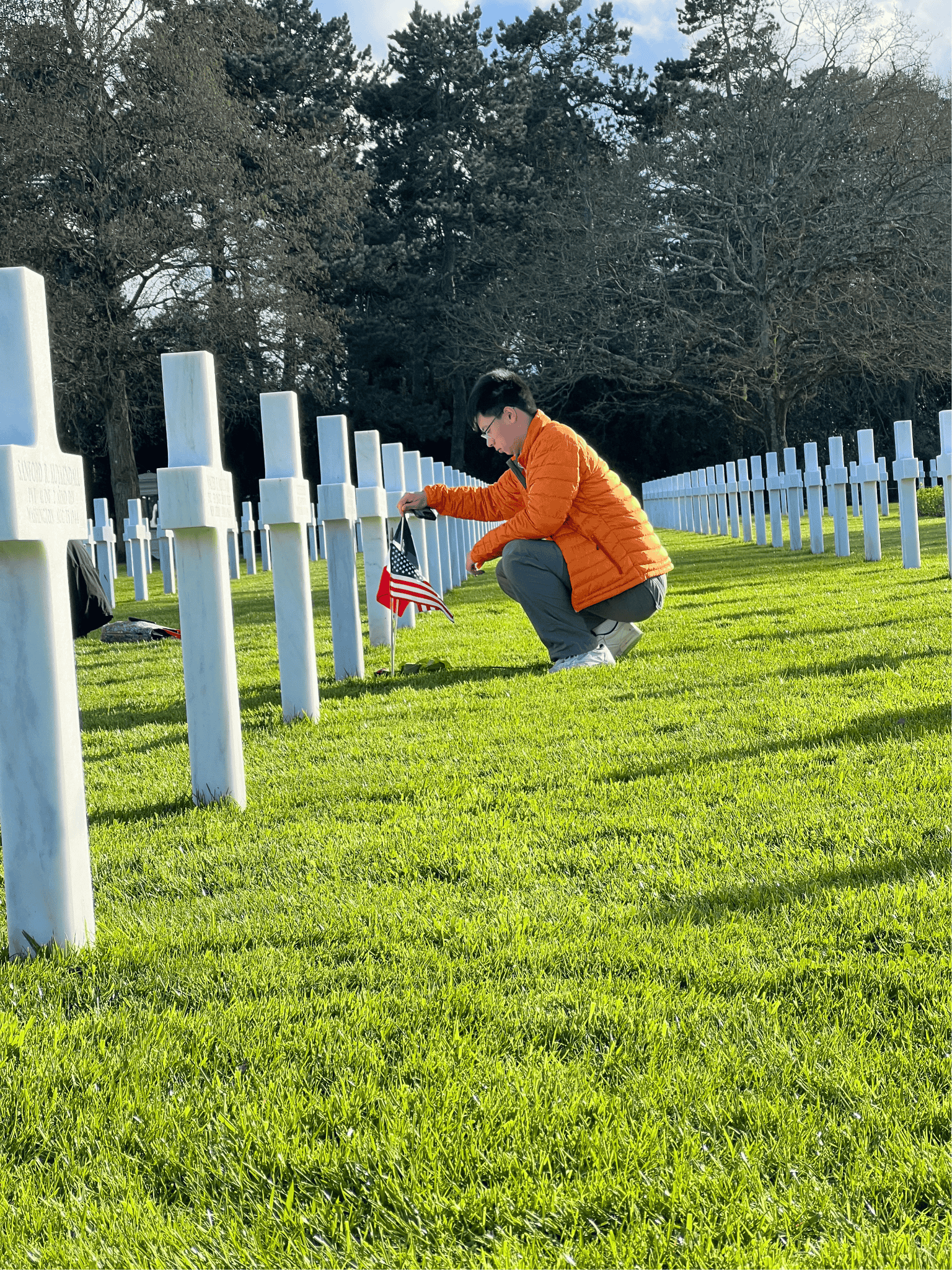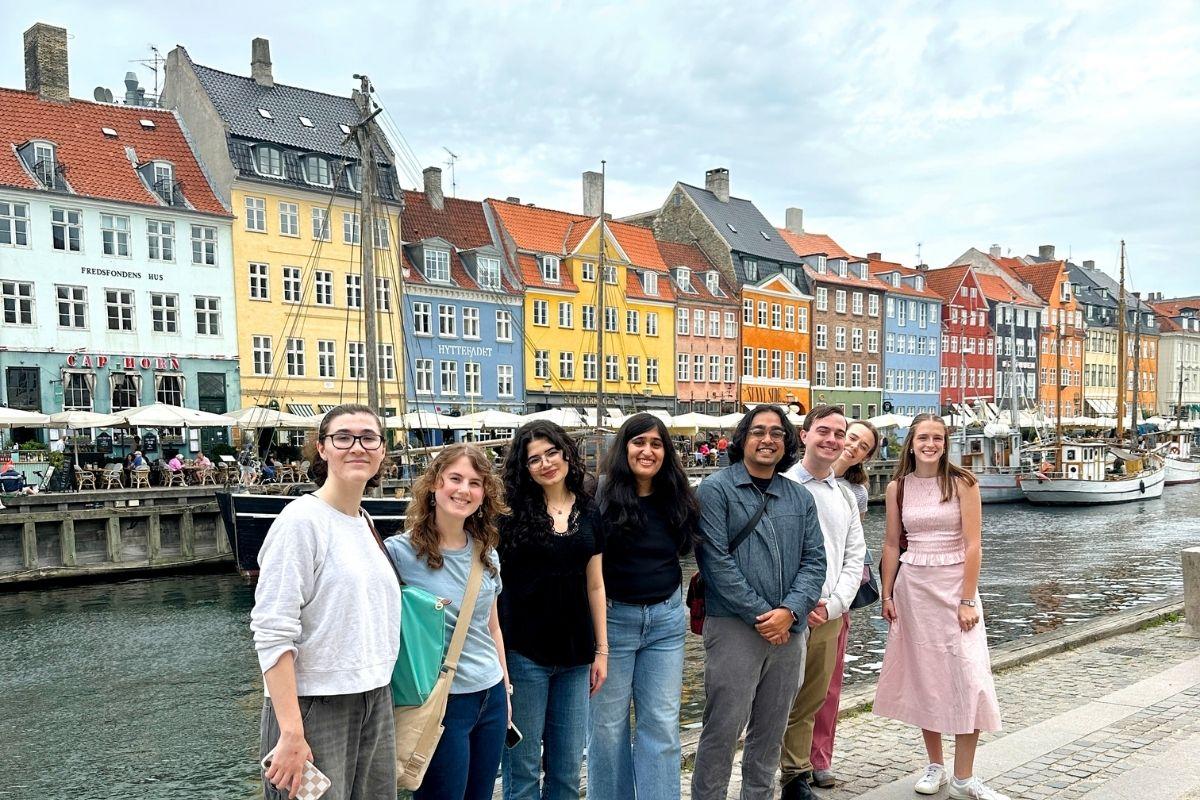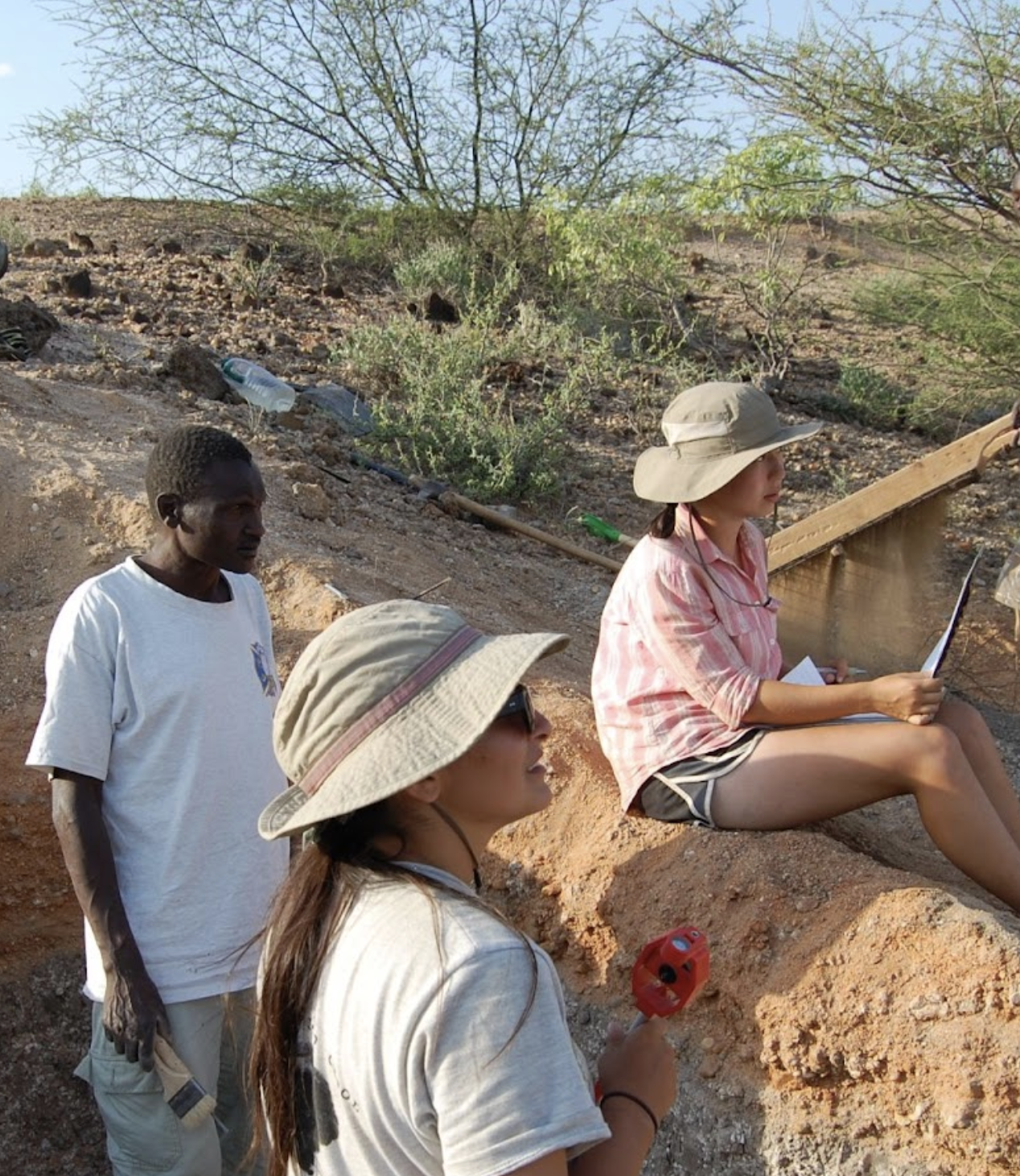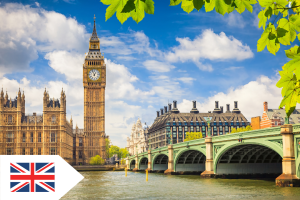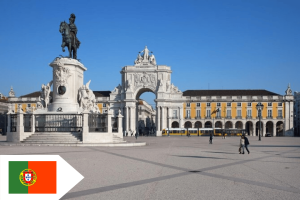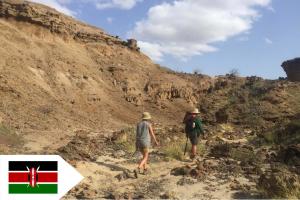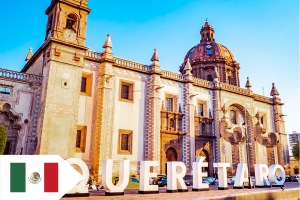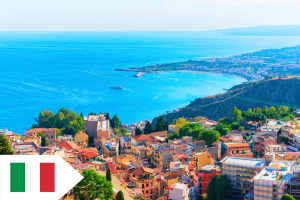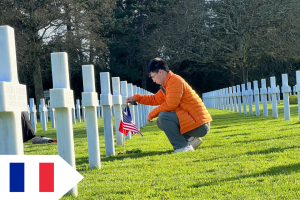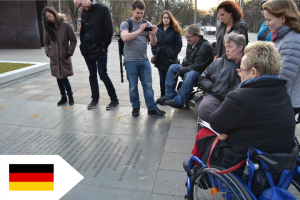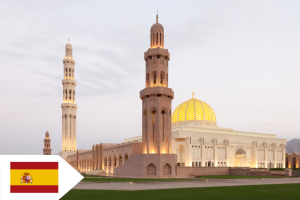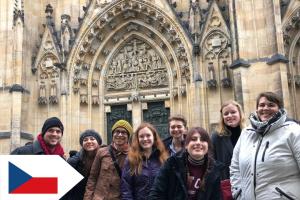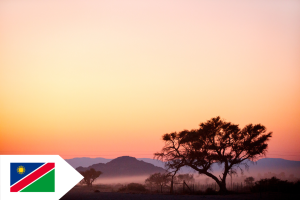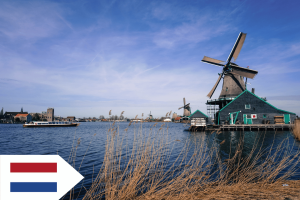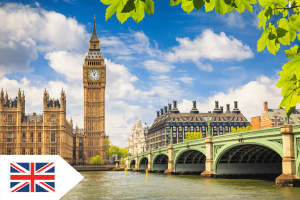Faculty-led Short-Term Abroad Programs
What are Faculty-led Short-Term Abroad Courses?
Short-Term Abroad Programs (STAP) are courses that expand learning beyond the classroom on GW campuses. For a semester-long course, in addition to going to the regular lectures, students also have the opportunity to travel as a class to an international destination(s) preselected as part of the curriculum. The collective international experiences present a unique way to enhance and innovate the learning of knowledge and gaining of cross-cultural and global perspectives.
Additionally, STAP courses can be a great alternative to traditional semester- or year-long study abroad programs, and STAPs are generally more affordable and require a shorter time commitment.
Program Applications & Course Registration
Enrolling in an STAP course requires that students submit an application through the GW Passport platform in order to be admitted. Please note that students cannot register themselves for an STAP course on GWeb, and you will instead be registered by CCAS Global staff after completing all required materials and submitting your program deposit.
For Summer 2026, please note the following general application deadlines.
Application Deadline: March 22nd, 2026
Deposit & Commitment Deadline: March 31st, 2026
Note: PSYD8270 & PHIL2111W/HONR2053W have earlier deadlines. Please see below.
Program Costs
Each STAP course has an associated fee to support their unique programming abroad, and fees are applied to the student eBill for the semester in which you are enrolled in the course. Upon acceptance, students will be prompted to pay a $350 program deposit by the Deposit & Commitment Deadline to secure their seat in the course. Please note that deposits are not an additional cost of participation, and are refundable within the Deposit & Commitment Deadline. For registered students, the deposit serves as a credit to your account and offsets a portion of the program fee on the student eBill. Follow links below for program-specific cost information.
Financial Support
Summer 2026:
Thanks to generous support from a CCAS alumna donor, CCAS Global is able to reduce course fees for all students enrolling in a Summer 2026 course! Additional details about fee reductions and program costs can be found within the application page for each program.
Need-based Aid:
CCAS Global also provides a limited number of need-based scholarships for students enrolled in an STAP class. The scholarship prioritizes applicants with demonstrated financial need and requires that you maintain a FAFSA on file with GW. CCAS Global will work with the GW Office of Student Financial Assistance to determine each student applicant’s specific financial eligibility.
Summer Session I Courses
- Belgium | Confronting Putin: European Responses to Russia's War on Ukraine (PSC 2994/6489)
Location Abroad: Brussels, Belgium
Dates Abroad: June 7th - June 13th, 2026
Credits: 3.0
Faculty Director: Andrew Hyde (andrew [dot] hyde
 gwu [dot] edu)
gwu [dot] edu)Course Description: This course will focus on the strategies, policies, and instruments both the European Union (EU) and North Atlantic Treaty Organization (NATO) are using to assist Ukraine. These have been rapidly implemented and frequently adapted given the shifts on the battlefield, the growing European perception of a larger Russian threat and an apparent reduction in the U.S. commitment to Europe’s security. The course will visit related institutions in Brussels while looking at the opportunities and challenges these policies and programs pose to U.S. foreign policy.
- France | Global Perspectives on Psychodynamics and Cinema (PSYD 8270)***
Please note that this program has an earlier application timeline due to obligations with the travel partners in France:
Application Deadline: February 1st, 2026
Deposit & Commitment Deadline: February 11th, 2026
Location Abroad: Cannes, France
Dates Abroad: May 18th - May 23rd, 2026
Credits: 3.0
Faculty Director: Professor Katherine Marshall Woods (katm
 gwu [dot] edu)
gwu [dot] edu)Eligibility: This program is restricted to graduate students, with priority given to students in the Professional Psychology Program. Other interested students should expand upon their relevant experience and/or coursework in their application.
Course Description: The Global Perspectives in Psychodynamics and Cinema explores the psychological concepts related to filmmaking as a form of global media arts. Students will learn to screen and analyze films while locating the psychological elements within this art form. By examining film characters and theme development, students will gain psychological tools that will help refine one’s psychological frameworks, better grasp the human condition while becoming conscientious consumers of media. The location of the class is in Cannes, France during the closed, film-industry only Cannes Film Festival.
- Ghana | Cultivating Sustainability Leadership: Connecting Local and Global Perspectives (GEOG 3195/6293)
Location Abroad: Accra, Kumasi, Tamale, and Wa; Ghana
Dates Abroad: May 20th - May 28th, 2026
Credits: 3.0
Faculty Director: Professor Moses Kansanga (mkansanga
 gwu [dot] edu)
gwu [dot] edu)Financial Support: With generous support from GW's Global Food Institute, the first 8 students to complete all application requirements and commit to the course will be eligible for an award of $750 to help offset program costs.
Course Description: How do we sustain a growing and relatively more demanding global population while staying within planetary boundaries? The urgency of sustainability leadership has never been greater, given the rapid convergence of environmental degradation, social inequality, and economic instability across the world. Through a blend of real-world case studies, hands-on fieldwork in Ghana and reflective leadership practices, this course provides a platform for students to engage with sustainability transitions by situating pressing environmental issues in the Global South within a broader global context.
- Greece | Ancient Greece and the Origins of Western Thought (PHIL 2111W/HONR 2053W)***
Please note that this program has an earlier application timeline due to obligations with the travel partners in Greece:
Application Deadline: February 22nd, 2026
Deposit & Commitment Deadline: March 4th, 2026
Location Abroad: Athens, Santorini, and Crete; Greece
Dates Abroad: May 19th - May 31st, 2026
Credits: 3.0
Faculty Director: Professor Mark Ralkowski (mralkow
 gwu [dot] edu)
gwu [dot] edu)Course Description:This short-term abroad course offers the extraordinary opportunity to study ancient Greek philosophy in Athens and the Peloponnese, and on the island of Santorini. We will visit the Oracle at Delphi that pronounced Socrates the wisest human being, and we will have class near the jail cell where the Athenians forced Socrates to drink hemlock. We will walk through the ruins of Aristotle's Lyceum, and we will visit the stunning site of Akrotiri on the island of Santorini that may have inspired Plato’s Myth of Atlantis. Before coming home, we will set sail from the Piraeus to get a sense of the place where the Athenians defeated the Persians and fought the twenty-seven year Peloponnesian War with the Spartans. This exciting program will introduce you to ancient Greek philosophy and take you to some of the places where the history of philosophy began!
Summer Session II Courses
- Austria | Vienna: Art & Empire (CAH 4189/6270, HIST3101/6101)
Location Abroad: Vienna, Austria
Dates Abroad: 7/9/2026 - 7/24/2026
Credits: 3.0
Faculty Director: Prof. Bibiana Obler & Prof. Kara Braciale
Course Description: This course will offer a history of art and empire across time, taking Vienna as its case study. Through readings, discussions, site visits, and opportunities to make art themselves, students will learn about history as accretion and art’s role as a force that can support or subvert empires. While the scope of this history is broad, and the range of arts wide, students will channel this background into focused research projects on topics of their own choosing.
- Denmark | Special Topics in Design: Danish Design through Culture (CGD 3010/CIXD 3110)
Location Abroad: Copenhagen, Denmark
Dates Abroad: 7/30/26 - 8/8/26
Credits: 3.0
Faculty Director: Prof. Marc Choi & Prof. Aasawari Kulkarni
Course Description: This course is designed for students to engage with and experience Copenhagen through the lens of design and its many applications. Students will investigate urban wayfinding systems, street signs and typography, local arts and crafts traditions, and local design history & culture. Additionally, this course will introduce students to new perspectives through studio visits to contemporary design studios and conversations with practicing designers. Students will analyze how culture and language shape the design landscape of Copenhagen to research and create formal design works. Through this course, students will take away a deep and practical understanding of the interdependence between design and culture.
- India | International Art Therapy: Cultural Awareness, Unconscious Bias & Reciprocal Learning (ARTH 6265)
Location Abroad: Chennai, India
Dates Abroad: 7/3/26 - 7/24/26
Credits: 2.0
Faculty Director: Professor Heidi Bardot
Course Description: This course offers an exciting opportunity for participants to explore their own racial, cultural self-awareness, and unconscious bias through self-assessment; to develop strategies for working with diverse communities; to hone critical thinking skills; to learn from local leaders; and to re-create art therapy specific to the cultural setting and influences. Participants will be in India for three weeks and involved in coursework and community work, art and cultural experientials, discussion groups, and much more.
- Portugal | Special Topics in Critical Heritage: Comparative Approaches to the US and Portugal (ANTH 3991)
Location Abroad: Lisbon, Portugal
Dates Abroad: 7/12/26 - 7/25/26
Credits: 3.0
Faculty Director: Professor Raquel Machaqueiro
Course Description: This course will take as a departing point the monumentalization of the so-called “Discoveries” in reference to the Portuguese maritime expansion, to critically analyze what constitutes heritage, who gets to define heritage, and with what goals. Students will learn more about the politics of memory in Portugal, establishing comparisons with the history of the United States, especially regarding the history of slavery, colonialism, and decolonization.
- Kenya | Koobi Fora Field School: Paleoanthropological Field Program (ANTH 3836/6836 & 3832/6832)
Location Abroad: Koobi Fora, Sibiloi National Park, Kenya
Dates Abroad: 6/12/26 - 7/26/26
Faculty Director: Dr. David Braun
Course Description: This unique course is open to undergraduate and graduate students who wish to learn the basic principles and field methods of paleoanthropology on location. Interested students are encouraged to contact the Faculty Director for more information.
Upcoming CCAS Global Events
Past Courses
- Spring 2026
- Belize: Climate, Conservation, Communication, and Culture (SMPA 3193)
Location Abroad: Dangriga & Caye Regions, Belize
Dates Abroad: March 7th - March 14th, 2026
Credits: 4.0
Faculty Director: Professor Imani Cheers (imanimcheers
 gwu [dot] edu)
gwu [dot] edu)Course Description: This course is built around a core filming project in which students will learn how to shoot, edit and produce a short documentary film that focuses on a global conversation on climate change, ocean/marine conservation and coastal erosion. Students will learn about the Garifuna and Mayan cultures as they adventure across the ocean, rainforests and islands of Belize. Follow the link below to view course prerequisites, program fees, itineraries, and to start your application today.
- India: Socio-Environmental Change in the Himalayas (GEOG 3195/6293)
Location Abroad: Mussoorie, India
Dates Abroad: March 6th - March 15th, 2026
Credits: 3.0
Faculty Director: Professor Aman Luthra (amanluthra
 gwu [dot] edu)
gwu [dot] edu)Course Description: The Himalayas—‘the Roof of the World’—play an extremely important role in the regulation of global climate systems. This course offers a unique opportunity to take students to India, where they will study and examine how the rainfed agriculture, monsoon and fluvial systems of the various cultural groups in the foothills of the Himalayas face socio-environmental challenges. Follow the link below to view course prerequisites, program fees, itineraries, and to start your application today.
- Ireland: Special Topics in Creative Writing (ENGL 3390)
Location Abroad: Dublin, Ireland
Dates Abroad: March 7th - March 14th, 2026
Credits: 3.0
Faculty Director: Professor Samuel Ashworth (sam_ashworth
 gwu [dot] edu)
gwu [dot] edu)Course Description: Over the last 150 years, Ireland—and Dublin specifically— has produced an unending river of legendary authors. Two things unite these authors across time: first, their work grapples with their own experience of Irish history— colonialism, Catholicism, liberation, migration, and so much more. And second, they consistently throw off formal conventions in the service of creating writing that is new and vibrant. As part of this course, students will explore Dublin during the spring break, learning how its extraordinary tradition evolved and exploring how Irish authors responded to upheaval as they lived through it. Follow the link below to view course prerequisites, program fees, itineraries, and to start your application today.
- Mexico: International Collaboration in Speech-Language Pathology (SLHS 6291)
Location Abroad: Queretaro, Mexico
Dates Abroad: February 28th - March 8th, 2026
Credits: 2.0
Faculty Director: Professor Erin Cardman (eacardman
 gwu [dot] edu) & Professor Cynthia Core (core
gwu [dot] edu) & Professor Cynthia Core (core gwu [dot] edu)
gwu [dot] edu)Course Description: This course will introduce students to the skills necessary for practice as a culturally competent clinician, while participating in international collaborations in speech-language pathology. Students will have the opportunity to meet with local professionals; visit numerous service delivery sites, observe, and collaborate with health and education service providers in Mexico. This course will be completed in collaboration with existing partners at the Universidad Autónoma de Querétaro in Mexico. Follow the link below to view course prerequisites, program fees, itineraries, and to start your application today.
- Mexico: Philosophy of the Environment (PHIL 2281 / GEOG 3195)
Location Abroad: Guadalajara, Mexico
Dates Abroad: March 6th - March 15th, 2026
Credits: 3.0
Faculty Director: Professor Michele Friend (michele
 gwu [dot] edu)
gwu [dot] edu)Course Description: In close collaboration with the University of Guadalajara, students will travel to the region over Spring Break and learn about the ecology of Lake Chapala and the Santiago River Basin. The group will engage with local students, farmers, and NGOs. Follow the link below to view course prerequisites, program fees, itineraries, and to start your application today.
- U.K. & France: The Price of Freedom, Normandy 1944 (HIST 3044W)
Location Abroad: London, U.K. and Bayeux & Paris, France
Dates Abroad: March 5th - March 15th, 2026
Credits: 4.0
Faculty Director: Professor Denver Brunsman (brunsman
 gwu [dot] edu)
gwu [dot] edu)Course Description: In this course, students will retrace the route of Allied soldiers who participated in the D-Day invasion by traveling to London and the Normandy region of France. Among the subjects to be explored are the origins and character of World War II in Europe; the challenges of opening an Allied “second front” in Europe; the D-Day invasion itself; and the “meanings of freedom” advanced by different sectors of the American population, among other topics. Follow the link below to view course prerequisites, program fees, itineraries, and to start your application today.
- Portugal: Sustainability and Human Wellness, Case Studies in Lisbon (CIAR 4560/6560)
Location Abroad: Lisbon, Portugal
Dates Abroad: March 6th - March 15th, 2026
Credits: 3.0
Faculty Director: Professor Erin Speck (jespeck
 gwu [dot] edu)
gwu [dot] edu)Course Description: Experience Lisbon Portugal and learn about sustainability and human wellness with Prof. Erin Speck. Students will get an overview of green building and human wellness initiatives that will introduce the student to modern standards, featuring examples of buildings and environments that realize these standards. Follow the link below to view course prerequisites, program fees, itineraries, and to start your application today.
- Fall 2025
Prague: Transnational Queer Film (ENGL 3980W-60H/WGSS 3170W)

On-Campus Class Times: MW 3:45PM - 5:00PM
Dates Abroad: November 5 - November 16, 2025
Location(s): Prague, Czechia
Course Description: The interdisciplinary field that has come to be called “queer” studies over the past two decades has always concerned itself with questions of representation: how are, for instance, lesbians and gay men, or bisexual or transgender people, represented in film, in novels, in other forms of media? As the field has developed, these questions of representation have increasingly been linked to other complex questions, involving political economy, globalization, and transnationalism: in what ways have lgbt people been incorporated into or marginalized by contemporary nation-states? What identities and desires threaten “the nation” as it is currently (and variously) materializes in our world? How have identities such as “gay” and “lesbian” circulated globally? How have those recognizable minority identities come into contact and conflict with other ways of identifying around non-normative desires, that are perhaps not so easily recognized or named? Have “gay” and “lesbian” at times functioned imperialistically, especially as “gay tourism” has become a recognizable part of global capitalism? Conversely, what kinds of unexpected alliances have been shaped across borders as queer movements have globalized? How have these movements theorized race, gender, class, and ability; what connections have been made with other movements organized, however contentiously, around identity?
This 3.0 credit film studies course is led by Professor Robert McRuer and will consider how questions of queer representation intersect with questions of queer globalization(s). From November 5th-16th, we will travel to Prague, Czech Republic to attend Mezipatra: Queer Film Festival along with students in Professor Kateřina Kolářová’s class.
- Summer 2025
Special Topics in Design: Danish Design through Culture (CGD 3010/CIXD 3110)

Dates Abroad: June 3 - June 12, 2025
Location(s) Abroad: Copenhagen, Denmark
Info Sessions (EST): Tues. 2/4, 5:45pm – 6:30pm, Flagg Rm 219 & Wed. 2/19, 6:00 - 6:45pm Smith Hall 402
Other Info/Requirements: 1 previous Art or Design course required, 1 Letter of Recommendation optional - please submit via email. Please note that this course is open to non-Corcoran School students.
Course Description: This is 3.0 credit course will be led by Prof. Marc Choi and Prof. Aasawari Kulkarni. Danish Design through Culture is designed for students to engage with, and experience Copenhagen through the lens of design and its many applications. Students will investigate urban wayfinding systems, street signs and typography, local arts and crafts traditions, and local design history & culture. Additionally, this course will introduce students to new perspectives through studio visits to contemporary design studios and conversations with practicing designers. Students will analyze how culture and language shape the design landscape of Copenhagen to research and create formal design works. Through this course, students will take away a deep and practical understanding of the interdependence between design and culture.
Cross Cultural Perspectives in Psychoanalysis (PSYD 8270) - Extended until 3/26

Dates Abroad: July 21 - July 26, 2025
Location(s) Abroad: London, England
Info Sessions (EST): Virtual via Zoom on Wed. 2/26, 7:00 PM. Meeting Link.
Other Info/Requirements: Course is open to students currently enrolled in the Professional Psychology program.
Course Description: This is 3.0 credit course will be led by Prof. Sarah Hedlund and Prof. Karen Weise. The course will provide students in psychology opportunities to gain cross-cultural understanding of psychoanalysis, including its historic and contemporary contributions by traveling to London, England. Students will explore British psychoanalytic traditions, through studies at the Freud Museum in London and case conferences at the Tavistock Clinic, and expand their knowledge of theory and scientific research.
Sustainability and Human Wellness in Today's Built Environment: Case Studies in Two Baltic Sea Cities (CIAR 4560/CIAR 6560) - Extended until 6/6

Class Time: T 9:00 -11:30am, 7/1/25 - 8/5/25
Dates Abroad: July 7 - July 20, 2025
Location(s) Abroad: Tallinn, Estonia & Helsinki, Finland
Info Sessions (EST): Tues. 2/18, 12:40-1:30pm GW Alliance for a Sustainable Future conference room 2101 F Street NW & Tues. 2/25, 12:30-1:30pm Phillips 411
Other Info/Requirements: This course fulfills the requirements of Pillar III of the Sustainability Minor and is open to non-Corcoran School students.
Course Description: This 3.0 credit course will be led by Prof. Erin Speck. Experience two Baltic cities and experience sustainable and human wellness strategies firsthand in Tallinn, Estonia, and Helsinki, Finland! Students will get an overview of green building and human wellness initiatives that will introduce the student to modern standards, featuring examples of buildings and environments that realize these standards. This will include the approaches advocated by WELL, Fitwel, GBI, LEED, the Living Future Institute, BREEAM, IWBI, and others. Students will meet with and have lectures and tours provided by local industry professionals on the topics.
Ancient Greece and the Origins of Western Thought (PHIL 2111/HONR 2053)
Dates Abroad: May 21 - June 2, 2025
Location(s) Abroad: Athens, Santorini, and Crete, Greece
Info Sessions (EST): Fri. 2/21, 4:00-5:00pm Rome Hall 568
Other Info/Requirements: Students who completed this course on-campus in AY24-25 should contact Prof. Mark Ralkowski for additional information about Summer opportunities.
Course Description: This 3.0 credit short-term abroad course, led by Prof. Mark Ralkowski, offers the extraordinary opportunity to study ancient Greek philosophy in Athens, the Peloponnese, and the island of Santorini. Students will visit the Oracle at Delphi which pronounced Socrates the wisest human being, and have a class near the jail cell where the Athenians forced Socrates to drink hemlock. We will walk through the ruins of Aristotle's Lyceum, and visit the stunning site of Akrotiri on the island of Santorini which may have inspired Plato’s Myth of Atlantis. Before coming home, we will set sail from the Piraeus to get a sense of the place where the Athenians defeated the Persians and fought the twenty-seven-year Peloponnesian War with the Spartans. This exciting program will introduce you to ancient Greek philosophy and take you to some of the places where the history of philosophy began!
International Art Therapy: Cultural Awareness, Unconscious Bias & Reciprocal Learning (ARTH 6265)
Dates Abroad: July 23 – August 15, 2025
Location(s): Chennai, India
Info Sessions (EST): Info session dates have passed. Please reach out to Prof. Heidi Bardot for additional information.
Other Info/Requirements: This is a graduate-only course. An interview with the Faculty Director is required for all non-Art Therapy and non-GW students.
Course Description: This 2.0 credit course, led by Prof. Heidi Bardot, offers an exciting opportunity for participants to explore their own racial, and cultural self-awareness, and unconscious bias through self-assessment; to develop strategies for working with diverse communities; to hone critical thinking skills; to learn from local leaders; and to re-create art therapy-specific to the cultural setting and influences. Participants will be in India for three weeks and involved in coursework and community work, art and cultural experiential, discussion groups, evening reflection tasks, and site-seeing with weekend cultural excursions (beach resort, arts center, temples, traditional dancing, flower market) and free expression/exploration time. The course will include clinical reciprocal-learning hours in local organizations: special education schools, schools for the most under-served children, physical and mental health facilities, children’s cancer centers, men’s shelters, and women’s shelters and group homes.
To see previous summer abroad experiences, visit our Facebook page and the GW Art Therapy website.
Cultural Exploration in Yucatan, Mexico: Documenting Issues with Sustainable Tourism (SMPA 3195-10)
Dates Abroad: May 25 - June 15, 2025
Location(s): Mérida, Mexico
Info Sessions (EST): 2/3, 2:30-3:30pm MPA 406A & 2/26, 2:30-3:30pm MPA 429A. By Zoom on 2/6 & 2/18, 6:00-7:00pm
Other Info/Requirements: There are no prerequisites for this course, however please note that the documentary field project will be the core of the program. Students will learn how to use the relevant equipment as part of the course.
Course Description: This 3.0 credit, 20-day documentary field study, led by Prof. Barbara Benitez-Curry, offers students a unique opportunity to immerse themselves in local culture while gaining practical experience in documentary filmmaking. By collaborating with a local social impact organization, students will engage in meaningful, hands-on learning that extends beyond the classroom. Our group will partner with Actuality Abroad which specializes in student documentary production abroad, as well as local field teams vetted thoroughly by Actuality Abroad who will serve as mentors and provide story ideas for production teams. Students will spend time researching, producing, and editing documentaries that will focus on solutions in place to social issues among indigenous communities.
Culture of Sustainability in the Netherlands, 15th – 21st C. (HIST 3101W)

Dates Abroad: July 22 - August 8, 2025
Location(s): Groningen, Utrecht, Rotterdam, the Hague, Amsterdam - The Netherlands
Info Sessions (EST): Wed. 2/26 5:30 Funger Hall 222
Other Info/Requirements: Students are encouraged to enroll in the companion course below, BISC 1008.
Course Description: This 3.0 credit course, led by Prof. Phillip Troutman, is in the arts of looking, coupled with an attention to sustainability. It treats the entire nation of the Netherlands as a case study (with special attention to Amsterdam, Utrecht, and Rotterdam), asking: How do Dutch people conceptualize, reorganize, and even create space? How do they use it, interact with it, and rework it to meet new needs? How do we engage it as visitors and outsiders? In False Flat: Why Dutch Design is So Good, architectural critic Aaron Betsky argues that since virtually every square centimeter of the Netherlands has been dredged from the ocean or otherwise engineered, space itself is precious, and therefore everything is designed to work in that space. Yet the ways Dutch people have imagined and used visual and physical space have changed radically over time, in uneven ways. Twenty-first-century bicycle infrastructure, for example, re-configured the entire transportation landscape around the most conservative vehicle on earth—the “Dutch bike,” whose design remains frozen in its 1930s state.
We will use the United Nations’ “17 Goals” as entry points into key questions: How do contemporary architects and designers relate their work to the city’s centuries-old canal layout, respond to ideas from the Amsterdam School or De Stijl, and the modern international city? How do historical museums imagine the difficult past and narrate it for present-day audiences? How do descendants of immigrants from former Dutch colonies in Indonesia and the Caribbean—along with immigrants from North Africa and elsewhere—use the city’s arts and public infrastructure to articulate new ideas about themselves, each other, and what it might mean to be “Dutch” in this post-colonial, international context? You’ll engage methods of visual analysis from art, design, architecture, museum studies, cultural studies, and anthropology. You will read, research, blog with peers, and write two essays revising and extending your writing from these posts.
Understanding Organisms through Service Learning in the Netherlands (BISC 1008)
Dates Abroad: July 22 - August 8, 2025
Location(s): Groningen, Utrecht, Rotterdam, the Hague, Amsterdam - The Netherlands
Info Sessions (EST): Wed. 2/26 5:30 Funger Hall 222
Other Info/Requirements: Students are encouraged to enroll in the companion course listed above, HIST3101W. Credit can not be earned for both BISC 1008 and BISC 1006.
Course Description: This is a 3.0 credit course led by Prof. Tara Scully. Understanding Organisms through Service is a service-learning course that replaces lab with community outreach focusing on ecological and environmental issues. The objectives are crafted so that you can leave this class and retain information for future use in real-world situations. For instance, many environmental public policies are related to our understanding of the nutrient cycles such as water. We all need water so understanding how water moves from the living to the non-living world is valuable, and what we learn can then be applied to city development, agriculture, fishing, and water quality initiatives and policies. Changes in policies only occur through knowledge and dissemination of knowledge and often through community pressure.
During this course, we will explore the basics of ecological systems, challenges, and solutions. You will compare and contrast the American mindsets to those of the Dutch ideals. We will find that people have quite different views, but we will dive into what leads to this variation and how change occurs in these two different cultures. We will also discuss many other ecological challenges including agriculture, water, fossil fuel use, and the energy crisis. These topics are plastered across media sources, but we will see how Americans talk about and try to solve these issues versus the Dutch. These topics are not just scientific in their nature instead they include aspects of politics, business, and very personal and religious issues. Together we will tackle these topics and connect them to our community through the service you will perform to apply this information.
Critical Heritage: Comparative Approaches to Portugal and the USA (ANTH 3991)

Dates Abroad: June 1 - June 29, 2025
Location(s): Lisbon, Portugal
Info Sessions (EST): Info Session Dates have passed. Please contact Prof. Raquel Machaqueiro for additional information.
Other Info/Requirements: Previous coursework in Anthropology preferred but not required.
Course Description: This is a 3.0 credit course led by Prof. Raquel Machaqueiro. This course will take as a departing point the monumentalization of the so-called “Discoveries” in reference to the Portuguese maritime expansion, to critically analyze what constitutes heritage, who gets to define heritage, and with what goals. Students will learn more about the politics of memory in Portugal, establishing comparisons with the history of the United States, especially regarding the history of slavery, colonialism, and decolonization. Finally, students will visit and experience some monuments and museums, some of which have developed decolonial efforts and promoted counter-narratives to the public history of the “Portuguese Discoveries,” and explore similar efforts in the US, namely through the work of the Smithsonian National Museum of African American History and Culture.
Kenya's Koobi Fora Field School: Paleoanthropological Field Program (ANTH 3836/6836 & 3832/6832)
Dates Abroad: June 13 - July 26, 2025
Location(s): Koobi Fora, Sibiloi National Park, Kenya
Other Info/Requirements: Please note that this program has a different application timeline and that applications will be reviewed on a first-come first-served basis. Please review the Anthropology Department's Koobi Fora Field School page for additional details and contact information.
Course Description: The Koobi Fora Field School (KFFS) is open to undergraduate and graduate students who wish to learn the basic principles and field methods of paleoanthropology on location. Students receive hands-on introductory training in all of the major disciplines within paleoanthropology: paleontology, archaeology, geology, taphonomy, and ecology.
The Koobi Fora area is protected within the Sibiloi National Park in Kenya and is listed as a World Heritage Site by UNESCO. Its rich Pliocene, Pleistocene, and Holocene sedimentary deposits have yielded a treasure trove of fossils and archaeological materials.
- Spring 2025
Climate, Conservation, Communication, and Culture in Belize (SMPA 3193)

On-Campus Class Times: Tues./Thurs., 9:35 - 10:50 am
Dates Abroad: March 8 - 15, 2024
Location(s) Abroad: Dangriga, Belize
Info Sessions (EST): 9/12, 2-2:30 pm MPA 510 & 10/3, 3-3:30 pm MPA 510. Via Zoom: 9/23, 6-6:30 pm & 10/7, 7-7:30 pm. Please contact Prof. Cheers at imanimcheers
 gwu [dot] edu (imanimcheers[at]gwu[dot]edu) for an invitation. View a brief presentation here.
gwu [dot] edu (imanimcheers[at]gwu[dot]edu) for an invitation. View a brief presentation here.Other Requirements: Completion of SMPA 2112 preferred; 2.5 GPA required.
Course Description: This is a 4.0 credit course. "Climate, Conservation, Communication & Culture in Belize" (SMPA 3193) is an experiential learning course with Prof. Imani Cheers which explores the intersection of the aforementioned themes in an international context. The course is built around a core filming project in which students will learn how to edit, produce, write, and film their own short documentaries.
Students will adventure through a broad range of environments and ecosystems, gathering footage along the way. This will include staying in the rainforest of Bocawina National Park before going on to explore Belize's Barrier Reef. Students will have opportunities to see Mayan ruins, learn about Garifuna culture, and visit a Smithsonian Field Station conducting research on the surrounding coral reefs. We will engage in all these activities with our documentary projects in mind, and work to understand how best to synthesize and present the interrelated themes of history, race, culture, and climate.
France: Globalization & Media (SMPA 3195)
On-Campus Class Times: Wed., 12:45 - 3:15 pm
Dates Abroad: March 8 - 15, 2024
Location(s) Abroad: Paris, France
Info Sessions (EST): 9/27, 10:00 am MPA 406A & 10/15, 1:00 pm MPA 406A
Course Description: This is a 3.0 credit course. The Short-Term Abroad Program led by Prof. Lee Huebner combines the excitement of spending spring break in Paris with a unique learning experience, focused on the changing nature of communications media in a new global environment.
During the course of the spring break, students will meet with some two dozen international media leaders — journalists, executives, scholars, and government officials. Meetings are held in classrooms, media offices, production facilities, and private homes — offering a once-in-a-lifetime behind-the-scenes experience. Free time is also scheduled into the program so that students have the chance to see the sites and enjoy the city.
Over the past fourteen years, students at the George Washington University have been able to participate in the Paris Seminar as part of a regular three-credit course SMPA 3195, "Globalization and the Media", open to all GW undergraduate and graduate students. Student participants have found the Paris Media seminar to be a highlight of their university careers — introducing them to new places, new perspectives, and new personalities. As one recent participant put it, "the Paris trip was life-changing… the trip of a lifetime." Read more about past student experiences.
International Collaboration in Speech - Language Pathology (SLHS 6291)
On-campus Class Times: Wed., 6:10 - 8:00 pm
Dates Abroad: March 8 - 16, 2024
Location(s) Abroad: Queretaro, Mexico
Info Session (EST): Please contact Prof. Erin Cardman for more information.
Other Requirements: In addition to the GW Passport Pre-Decision application, a brief interview with Prof. Cardman is required. Please email Prof. Cardman at eacardman
 email [dot] gwu [dot] edu (eacardman[at]gwu[dot]edu) to schedule your interview. Your application will not be considered complete until the interview has been confirmed by Prof. Cardman. The deadline to interview is Oct. 20, 2024. Spanish language skills are not required.
email [dot] gwu [dot] edu (eacardman[at]gwu[dot]edu) to schedule your interview. Your application will not be considered complete until the interview has been confirmed by Prof. Cardman. The deadline to interview is Oct. 20, 2024. Spanish language skills are not required.Course Description: This is a 2.0 credit course led by Prof. Erin Cardman and Prof. Cynthia Core. This course will introduce students to the skills necessary for practice as a culturally competent clinician, while participating in international collaborations in speech-language pathology. In collaboration with existing partners at the Universidad Autónoma de Querétaro, students will have the opportunity to meet with local professionals; visit numerous service delivery sites, observe, and collaborate with health and education service providers, and experience and evaluate the scope of practice in Speech-Language Pathology in Mexico. Students will also participate in one of two language courses (beginner-intermediate or advanced) to learn Spanish terminology specific to SLP. In addition to the professional site visits and collaborations, students will participate in several rich cultural events and encounters.
Upon return to the US, students will complete a group summative project detailing their learning experience and addressing the implications for multicultural service delivery in SLP both at home and abroad. This unique opportunity for students allows them and participating faculty to establish lasting personal and professional relationships with partners in Mexico.
Oman: Business & Cultural Exploration (ARAB 2105)

On-Campus Class Times: Thurs., 4:10 - 5:00 pm, 1/13 - 3/6
Dates Abroad: December 28, 2024 - January 7, 2025
Location(s) Abroad: Muscat, Oman
Info Session (EST): 9/24, 4:30-5:30 pm Philips 411 & 10/1, 4:30-5:30 pm Philips 411
Other Requirements: Completion of relevant area-studies coursework or some Arabic language ability preferred.
Course Description: This is a 1.0-credit course led by Prof. Mohssen Esseesy. The course content and design expose students to business-related contexts they will encounter in professional settings during the trip to Oman, where Arabic and English are used. Therefore, the twin aim of this course is to help in developing Arabic language capacity and culture proficiency AND for business purposes.
In this course, students will read business-focused content in each unit/theme as well as research information and gather data online under guidance from the professor. Writing in the course includes written daily journal entries during the Oman visit, joint reports using business-focused vocabulary that also conforms to the conventions in the Arab world; drafting summaries of research findings; presenting own research, which contains data, analysis, suggestions, recommendations, implementation of solutions to business problems; as well as writing reflections using learned specialized business terms. Speaking in the course includes pair and group-work discussions and debates with classmates, engaging with the business professionals in Oman during our visit, and presenting our own research findings and reports. Listening in the course includes assigned videos that are identified by the professor and note-taking during meetings with business executives and professionals in Oman.
Sustainability and Human Wellness: Case Studies in Two Iberian Cities (CIAR 4560/CIAR6560)

On-Campus Class Times: Tue., 10:00 - 11:50 am
Dates Abroad: March 7 - 16, 2025
Location(s) Abroad: Barcelona, Spain & Lisbon, Portugal
Info Sessions (EST): 9/17, 1:45 pm Flagg 212 & 9/26, 12:30 pm at the GW Alliance for a Sustainable Future, 2101 F St., 2nd Floor Conference Room.
Other Information: This course fulfills the requirements of Pillar III of the Sustainability Minor and is open to non-Corcoran School students.
Course Description: This is a 3.0 credit course. Visit Barcelona, Spain and Lisbon, Portugal, and learn about sustainability with Prof. Erin Speck. Students will get an overview of green building and human wellness initiatives that will introduce the student to modern standards, featuring examples of buildings and environments that realize these standards. This will include the approaches advocated by IWBI, Fitwel, Green Globes, LEED, the Living Building Challenge, and others. This program will be hosted in collaboration with the Institute for American Universities and the study abroad institute of The American College of the Mediterranean, and students will get to meet with local industry leaders on the topic.
The Price of Freedom: Normandy 1944 (History 3044W)

On-campus Class Times: Wed., 5:10 - 8:00 pm
Dates Abroad: March 6 - 16, 2025
Location(s) Abroad: London, UK & Normandy, France
Info Session (EST): Please contact Prof. Eric Arnesen
Other Requirements: In addition to the GW Passport Pre-Decision application, a brief interview with Prof. Arnesen is required. Please email Prof. Arnesen at arnesen
 gwu [dot] edu to schedule your interview. Your application will not be considered complete until the interview has been confirmed by Prof. Arnesen. The deadline to interview is Oct. 20, 2024.
gwu [dot] edu to schedule your interview. Your application will not be considered complete until the interview has been confirmed by Prof. Arnesen. The deadline to interview is Oct. 20, 2024.Course Description: This is a 4.0 credit course. “The Price of Freedom: Normandy 1944” (History 3044W) is an experiential course with Prof. Eric Arnesen which explores the causes, conduct, and consequences of modern war through the vehicle of the 1944 Normandy Campaign, examining its impact on individuals, communities, and the nation.
Through an extensive series of lectures, discussions, and films we explore the massive, complex, and uncertain D-Day invasion and the fighting through the liberation of Paris. The class starts with a rigorous “staff ride” (that’s army-speak for a participatory, educational tour) of the entire campaign. Each student will conduct a briefing about some element of the campaign at the appropriate location. The highlight of the trip will be a visit to the actual landing beaches and the laying of a wreath at the memorial in the American Cemetery at Omaha Beach, followed by each student presenting a eulogy for their soldier at the soldier’s graveside.
- Fall 2024

Prague: Transnational Queer Film (ENGL 3980-60H)
Dates Abroad: November 7th-17th, 2024
Location(s): Prague, Czech Republic
Course Description: ENGL 3980-60H
This film studies course is led by Professor Robert McRuer and will consider how questions of queer representation intersect with questions of queer globalization(s). From November 7th-17th, we will travel to Prague, Czech Republic to attend Mezipatra: Queer Film Festival along with students in Professor Kateřina Kolářová’s class.
The interdisciplinary field that has come to be called “queer” studies over the past two decades has always concerned itself with questions of representation: how are, for instance, lesbians and gay men, or bisexual or transgender people, represented in film, in novels, in other forms of media? As the field has developed, these questions of representation have increasingly been linked to other complex questions, involving political economy, globalization, and transnationalism: in what ways have lgbt people been incorporated into or marginalized by contemporary nation-states? What identities and desires threaten “the nation” as it is currently (and variously) materializes in our world? How have identities such as “gay” and “lesbian” circulated globally? How have those recognizable minority identities come into contact and conflict with other ways of identifying around non-normative desires, that are perhaps not so easily recognized or named? Have “gay” and “lesbian” at times functioned imperialistically, especially as “gay tourism” has become a recognizable part of global capitalism? Conversely, what kinds of unexpected alliances have been shaped across borders as queer movements have globalized? How have these movements theorized race, gender, class, and ability; what connections have been made with other movements organized, however contentiously, around identity?
- Summer 2024
-
France: Global Cities (SOC 2181-10)
Dates Abroad: June 17–29, 2024
Location(s): Paris, France
Course Description: SOC 2181-10
Globalization has linked together some of the largest cities of the world financially, economically, geopolitically, and culturally. Climate change, diseases, war, migration and trade connect the fates of residents in far-flung locations. Air transportation, the internet, media, sports and film make it possible to live as citizens of the world. And as more people leave the land for city life, more of the human population is urbanizing, overwhelming infrastructure and available housing. Despite common pressures, however, cities retain their distinctiveness and unique networks. Citizens and strangers celebrate joyous events in open public spaces. Capital cities like Washington and Paris have dense diplomatic relations, but also their own symbols, landmarks, architecture, spatial forms, social compositions, values and ways of life. This course with Prof. Hilary Silver examines the similarities and differences of these and other global cities, including those in the Global South that aspire to world status. It should appeal to city lovers everywhere.
India: International Art Therapy: Cultural Awareness, Unconscious Bias & Reciprocal Learning (ARTH 6265)
Dates Abroad: June 28–July 19, 2024
Location(s): Chennai, India
Course Description: ARTH 6265
Join us in this exciting opportunity to study and explore social and cultural diversity, awareness, art, and art therapy in a culture different than your own. Participants will be in India for three weeks. This trip includes coursework and community service or reciprocal-learning, art and cultural experientials, discussion groups, and artmaking and journaling. Community work will include an elementary school for disadvantaged children, physical and mental health facilities, a children’s cancer center, and men and women’s shelters.Students will explore their own racial and cultural self-awareness and unconscious biases through self-assessment, develop strategies for working with diverse communities, hone critical thinking skills, learn from local leaders, and create art therapy specific to the cultural setting and influences. A foundation of knowledge will be offered to understand the diversity of artistic language, symbolism, and art-making process across cultures.
To see previous summer abroad experiences, visit our Facebook page and the GW Art Therapy website.
Italy: Sicily - The Crossroads of the Mediterranean (ITAL 3310)
Dates Abroad: May 20–June 10, 2024
Location(s): Sicily, Italy
Course Description: ITAL 3310
Since 1861, the island of Sicily has been a part of Italy. It has not always been so, however; a veritable place of confluence, this course will explore Sicilian identity and culture throughout its manifold periods. A study of Sicilian literature and film paired with onsite visits reinforce students’ examination of cross-cultural contact on the island. Cultures explored will include the indigenous Siculi and Sicanian civilizations, Greek Sicily, the Roman period, and successive Norman, Arab, Spanish, and French reigns. Students will explore how all of these cultures that have inhabited the island–their religions, literature, artistic traditions, gastronomy, agricultural practices, etc.—remain today, creating a rich, complicated, and diverse fabric resulting in what is contemporary Sicily.
Kenya: Koobi Fora Field School (ANTH 3832/ANTH 6832)
Dates Abroad: June 4–July 20, 2024
Location(s): Koobi Fora and Nairobi, Kenya
Course Description: ANTH 3832/ANTH 6832.
The Koobi Fora Field School (KFFS) is open to undergraduate and graduate students who wish to learn the basic principles and field methods of paleoanthropology on location. Students receive hands-on introductory training in all of the major disciplines within paleoanthropology: paleontology, archaeology, geology, taphonomy and ecology.
The Koobi Fora area is protected within the Sibiloi National Park in Kenya and is listed as a World Heritage Site by UNESCO. Its rich Pliocene, Pleistocene and Holocene sedimentary deposits have yielded a treasure trove of fossils and archaeological materials.
The execution of this program is contingent upon global health and safety conditions.
International Documentary Field Production: Celebrating Culture and Sustainable Tourism in Oaxaca, Mexico (SMPA 3195)
Dates Abroad: May 27–June 22, 2024
Location(s): Oaxaca, Mexico
Course Description: SMPA 3195
Oaxaca, Mexico is a designated UNESCO World Heritage site that offers a rich historical backdrop. The city is steeped in indigenous heritage yet shaped by Spanish colonialism and stands as a testament to cultural diversity. It is a popular tourist destination in Mexico.
The tourism sector in Oaxaca is influenced by numerous changemakers committed to preserving traditions and fostering sustainable industry practices. These efforts contribute to the city's appeal and provide students with a unique environment for learning and exploration.
Students will spend four weeks in and around Oaxaca the be steeped the rich Mexican culture the city has to offer, as they immerse themselves in the local culture while learning nonfiction documentary field production. Our group will partner with Actuality Abroad which specializes in student documentary production abroad, as well as local field teams vetted thoroughly by Actuality Abroad who will serve as mentors and provide story ideas for production teams. Students will spend four weeks researching, producing, and editing documentaries of approximately 8-10 minutes in duration that will focus on solutions in place to social issues among indigenous communities.
Netherlands: Culture of Sustainability in the Netherlands, 15th – 21st C. (UW 2020W/HIST 3101W)
Dates Abroad: June 7–27, 2024
Location(s): Amsterdam, the Netherlands
Course Description: UW 2020W/HIST 3101W
Amsterdam is unique in that every square centimeter has been painstakingly designed: dredged from the sea, drained, and canalized since the 15th century, raising key questions of sustainability. These processes shape the city’s relationship not only to water, but also to surrounding villages, farms, and natural spaces, most of them sitting on equally human-made land. The term landscape derives from the Dutch "landschop", literally shoveled land. How have Dutch architects, planners, designers, and politicians shoveled this land? How do they respond to 21st century demands of climate change? We will also approach Dutch visual culture through a lens of sustainability.Amsterdam’s rich heritage of art was built on liberal immigration policy but also on slavery and colonization. How can this complex legacy be understood, preserved, critiqued, and built upon? Amsterdam’s museums and galleries work to answer these questions and, more concretely, help shape the physical geography of the city itself.
We’ll address these networked issues of sustainability with a multi-disciplinary approach, hosting virtual field trips and live chats with Dutch experts and special guests
Spain: Sustainability and Human Wellness in Today's Built Environment (CIAR 4560/CIAR6560)
Dates Abroad: July 1–14, 2024
Location(s): Barcelona, Spain
Course Description: CIAR 4560/CIAR 6560
Visit Barcelona and learn about sustainability with Prof. Erin Speck. Students will get an overview of green building and human wellness initiatives that will introduce the student to modern standards, featuring examples of buildings and environments that realize these standards. This will include the approaches advocated by IWBI, Fitwel, Green Globes, LEED, the Living Building Challenge, and others. This program will be hosted in collaboration with the Institute for American Universities and the study abroad institute of The American College of the Mediterranean, and students will get to meet with local industry leaders on the topic. - Spring 2024
-
International Media Seminar in Paris (SMPA 3195)
On-campus Meeting Times: Tuesdays, 6:00 pm - 8:00 pm
Class Dates Abroad: March 8–16, 2024
Location(s): Paris, France
Info Session Office Hours (EST): 9/19, 6-8pm, SMPA 511; 9/26, 6-8pm, SMPA 511
Course Description: This Short-Term Abroad Program led byProf. Lee Huebner combines the excitement of spending spring break in Paris with a unique learning experience, focused on the changing nature of communications media in a new global environment.
During the course of the spring break, students will meet with some two dozen international media leaders — journalists, executives, scholars, and government officials. Meetings are held in classrooms, media offices, production facilities and private homes — offering a once in a lifetime behind-the-scenes experience. Free time is also scheduled into the program so that students have the chance to see the sites and enjoy the city.
Over the past fourteen years, students at the George Washington University have been able to participate in the Paris Seminar as part of a regular three-credit course SMPA 3195, "Globalization and the Media", open to all GW undergraduate and graduate students. Student participants have found the Paris Media seminar to be a highlight of their university careers — introducing them to new places, new perspectives and new personalities. As one recent participant put it, "the Paris trip was life-changing… the trip of a lifetime." Read more about past student experiences.
Photo taken by 2023 STAP Photo Contest winner and STAP Student, Kylie McKenna The Price of Freedom: Normandy 1944 (History 3044W)
On-campus Meeting Times: Tuesdays & Thursdays, 5:10 pm - 7:00 pm
Dates Abroad: March 7–17, 2024
Location(s): Normandy, France and Other
Info Session (EST): 9/22, 11am - PHIL 328; 10/5, 5pm - Zoom
Course Description: “The Price of Freedom: Normandy 1944” (History 3044W) is an experiential course which explores the causes, conduct, and consequences of modern war through the vehicle of the 1944 Normandy Campaign, examining its impact on individuals, communities, and the nation.
Through an extensive series of lectures, discussions, and films we explore the massive, complex, and uncertain D-Day invasion and the fighting through the liberation of Paris. The class starts with a rigorous “staff ride” (that’s army-speak for a participatory, educational tour) of the entire campaign. Each student will conduct a briefing about some element of the campaign at the appropriate location. The highlight of the trip will be a visit to the actual landing beaches and the laying of a wreath at the memorial in the American Cemetery at Omaha Beach, followed by each student presenting a eulogy for their soldier at the soldier’s graveside.
In addition to the GW Passport Pre-Decision application, a brief interview with Prof. Brunsman is required. Please email Prof. Brunsman at brunsman
 gwu [dot] edu to schedule your interview. Your application will not be considered complete until the interview has been confirmed by Prof. Brunsman. The deadline to interview is Oct. 22, 2023.
gwu [dot] edu to schedule your interview. Your application will not be considered complete until the interview has been confirmed by Prof. Brunsman. The deadline to interview is Oct. 22, 2023.
Disability and the Holocaust (ENGL 3912, AMST 3950)
On-campus Meeting Times: Thursdays, 2:10pm - 4:30 pm
Dates Abroad: March 9–17, 2024
Location(s): Berlin, Germany
Info Session (EST): 9/21, 5:10 pm - 1957 E 111; 10/2, 4:30 pm - Zoom
Course Description: This Short-Term Abroad Program led by Prof. David Mitchell focuses on the history of Nazi Germany's impact on disabled people. The 1980s, nearly four decades after the formal end of World War II, a group of German and American historians began connecting the genocide of 6 million Jewish (as well as Romany, Russian, and gay) people in the Holocaust to the mass killings of 300,000 disabled people in psychiatric hospitals, clinics, and institutions. The “euthanasia murders” began in October 1939 nearly a year and a half before the advent of the “final solution” in Nazi death camps. The research caused a great deal of debate amongst Holocaust scholars due to the fact that medical killings were treated separately from those prosecuted for Nazi war crimes during the Nuremburg trials. Many believe that physician supervised killings in medical institutions counted as treatment for those classified as “lives unworthy of life” (i.e. those diagnosed with physical, cognitive, and sensory disorders and, in the terms of the time, incapable of productive labor). This past September, following decades of disability activism, the first state supported memorial to those killed in the T4 program opened in Berlin. The class will grapple with questions of the relationship of medical murders to Holocaust genocide, the struggle to publicly memorialize the T4 killings in Germany, as well as consider how this history affects the lives of German disabled people today.
Sustainability and Human Wellness in Today's Built Environment ( CIAR 4560, CIAR 6560)
On-campus Meeting Times: Thursdays, 9:00 am - 11:30 am
Dates Abroad: January 2–14, 2024 (Outside Spring Break)
Location(s): Barcelona, Spain
Info Session (EST): 9/27, 12:30pm, 1957 E 412
Course Description: Visit Barcelona during New Year festivities while learning about sustainability with Prof. Erin Speck. Students will get an overview of green building and human wellness initiatives that will introduce the student to modern standards, featuring examples of buildings and environments that realize these standards. This will include the approaches advocated by IWBI, Fitwel, Green Globes, LEED, the Living Building Challenge, and others. This program will be hosted in collaboration with the Institute for American Universities and the study abroad institute of The American College of the Mediterranean, and students will get to meet with local industry leaders on the topic.
Photo taken by 2023 STAP Photo Contest winner and STAP Student, Rivaldo Mendez Latin American Sexual Identities (PSYC 3199, WGSS 3170)
On-campus Meeting Times: Wednesdays, 6:10 pm - 8:40 pm
Dates Abroad: March 7–17, 2024
Location(s): Mexico City and Puerto Vallarta in Mexico
Info Session (EST): 9/28, 6:15 pm - PHIL 411; 9/29, 12:30 pm - Zoom
Course Description: This course with Prof. Stephen Forssell takes an intersectional approach to examining sexual orientation and sexual identity with special attention paid to the Latinx experience of same-sex sexuality. We will explore social science research related to gay, lesbian, bisexual, transgender, and Queer (LGBTQ) identities, as well as non-LGBTQ identified same-sex sexuality in both the U.S. and in Latin America. Informed by the cultural context of two cities central to gay life in Mexico, and enhanced through academic readings, cultural excursions and community engagement, this course will explore unique challenges and triumphs of individual and groups navigating the diverse and multiple LGBTQ identities and lifestyles that co-exist within contemporary Mexican urban society. Students will explore topics such as LGBTQ identity development, race/ethnicity, LGBTQ transnational interface (specifically, the co-mingling of Mexican and American LGBT Communities), as well as a community’s response to the HIV-AIDS and Covid-19 pandemics.
Our backdrops for exploration will be Mexico City (CDMX) and Puerto Vallarta, Mexico. CDMX is home to one of most vibrant and active gay and lesbian cultures in Latin America. La Zona Rosa is the center of queer life in CDMX, home to many nightclubs, shops, and restaurants that cater to and support the LGBTQ community. Puerto Vallarta has developed into Mexico’s premiere gay resort town, a satellite gay space for its big sister cities of Mexico City and Guadalajara, much as Fire Island is to New York City.
International Collaboration in Speech - Language Pathology (SPHR 6291)
On-campus Meeting Times: Wednesdays, 6:10 pm - 8:40 pm
Dates Abroad: March 8–16, 2024
Location(s): Queretaro, Mexico
Info Session (EST): 9/26, 5:30pm, Zoom; 10/3, 5:30pm, Zoom
Course Description: This course, led by Prof. Erin Cardman and Prof. Cynthia Core, will introduce students to the skills necessary for practice as a culturally competent clinician, while participating in international collaborations in speech-language pathology. In collaboration with existing partners at the Universidad Autónoma de Querétaro, students will have the opportunity to meet with local professionals; visit numerous service delivery sites, observe, and collaborate with health and education service providers and experience and evaluate the scope of practice in Speech Language Pathology in Mexico. Students will also participate in one of two language courses (beginner-intermediate or advanced) to learn Spanish terminology specific to SLP. In addition to the professional site visits and collaborations, students will participate in several rich cultural events and encounters. Upon return to the US, students will complete a group summative project detailing their learning experience and addressing the implications for multicultural service delivery in SLP both at home and abroad. This unique opportunity for students allows them and participating faculty to establish lasting personal and professional relationships with partners in Mexico.
In addition to the GW Passport Pre-Decision application, a brief interview with Prof. Cardman is required. Please email Prof. Cardman at eacardman
 email [dot] gwu [dot] edu (eacardman[at]gwu[dot]edu) to schedule your interview. Your application will not be considered complete until the interview has been confirmed by Prof. Cardman. The deadline to interview is Oct. 22, 2023.
email [dot] gwu [dot] edu (eacardman[at]gwu[dot]edu) to schedule your interview. Your application will not be considered complete until the interview has been confirmed by Prof. Cardman. The deadline to interview is Oct. 22, 2023.
Oman: Business & Cultural Exploration (ARAB 2105)
On-campus Meeting Times: Thursdays, 4:00 pm - 5:00 pm
Dates Abroad: March 2–12, 2024
Location(s): Muscat, Oman
Info Session (EST): 9/26, 5:00 PM - Funger Hall 223; 10/6, 5:00 PM - Rome Hall 352
Course Description: This course, led by Prof. Mohssen Esseesy, has the twin aim of Arabic language and cultural immersion. Students will develop their Arabic language and culture proficiency at the advanced level and for business purposes. They will be engaged in simulated “real life” business tasks and authentic tasks in Oman. Such tasks require multidimensional problem-solving skills and competency in Arab culture. They also require the ability to evaluate and weight competing factors, consideration of options, and presenting a defensible, creative solution to business problems. This is a one-of-a-kind language immersion opportunity for students to explore business-in-action within an emerging Middle Eastern economy. Read more about past student experiences.
An additional requirement for this course is that students must be at the Advanced Level of Arabic proficiency as measured by the ACTFL Guidelines, or have taken or is concurrently taking Business Arabic (ARAB 3311) in spring 2024. For any questions, please email Prof. Esseesy at esseesym
 gwu [dot] edu.
gwu [dot] edu. - Fall 2023
-
Transnational Queer Film (ENGL 3980-60H)
Dates Abroad: November 2–12, 2023
Location(s): Prague, Czech Republic
Application Deadline: May 12, 2023 (extended to May 17, 2023)
Deposit Deadline: May 24, 2023
Course Description:
This course (English 3980-60H) with Prof. Robert McRuer, Transnational Queer Film Studies and LGBTQ Cultures, is in the interdisciplinary field that has come to be called “queer” studies over the past two decades and it has always concerned itself with questions of representation: how are, for instance, lesbians, gay men, bisexuals, or transgendered people, represented in film, in novels, in other forms of media? As the field has developed, these questions of representation have increasingly been linked to other, complex questions, involving political economy, globalization, and transnationalism: in what ways have LGBT people been incorporated into contemporary nation-states? What identities and desires threaten “the nation” as it is currently (and variously) materialized in our world? How have identities such as “gay” and “lesbian” circulated globally? How have those recognizable minority identities come into contact and conflict with other ways of identifying around non-normative desires? Have those identities at times functioned imperialistically, especially as “gay tourism” has become a recognizable part of global capitalism? Conversely, what kinds of unexpected alliances have been shaped across borders as queer movements have globalized? How have these movements theorized race, gender, class, and ability; what connections have been made with other movements organized, however contentiously, around identity?
The execution of this program is contingent upon global health and safety conditions.
- Summer 2023
-
France: Global Cities (SOC 2181-10)
Dates Abroad: June 4–18, 2023
Location(s): Paris, France
Info Session(s):
February 7, 12pm, PHIL 410 & Zoom
February 15, 3pm, PHIL 410Course Description:
Globalization has linked together some of the largest cities of the world financially, economically, geopolitically, and culturally. Climate change, diseases, war, migration and trade connect the fates of residents in far-flung locations. Air transportation, the internet, media, sports and film make it possible to live as citizens of the world. And as more people leave the land for city life, more of the human population is urbanizing, overwhelming infrastructure and available housing. Despite common pressures, however, cities retain their distinctiveness and unique networks. Citizens and strangers celebrate joyous events in open public spaces. Capital cities like Washington and Paris have dense diplomatic relations, but also their own symbols, landmarks, architecture, spatial forms, social compositions, values and ways of life. This course examines the similarities and differences of these and other global cities, including those in the Global South that aspire to world status. It should appeal to city lovers everywhere.
Namibia: Namibian San, the last hunter-gatherers, a sociological journey (SOC 2181-11)
Dates Abroad: July 8–29, 2023
Location(s): Tusmkwe, Namibia
Info Session(s):
February 8, 12pm, PHIL 410
February 14, 3pm, PHIL 410
Course Description:
This short-term abroad course offers the extraordinary opportunity to spend time with the last hunter-gatherers of the planet, the Ju’/hoansi San of Namibia, in the Nyae Nyae Conservancy, the only place where they are allowed to leave traditionally.
During our three weeks in Tsumkwe, the capital of the San community of Namibia, we will learn about San history, their struggles and their attempts to find some space within the Namibian national identity. We will look at different sociological aspects of the community: gender relations, social stratification, education, identity (de/re)constructions and power relations within the community and in relation to the Namibian national identity. Students will have the privilege to interact with members of the community, and when not in the classroom, they will follow the Ju’/hoansi’s steps on bush walks, where they will learn about their skills as trackers and their knowledge about indigenous plants.
This class will offer a unique immersion opportunity for students.
Greece: The Art of Living (PHIL 2111/HONR 2053)
Dates Abroad: May 24–June 4, 2023
Location(s): Athens, Santorini, and Crete, Greece
Info Session(s):
February 17, 4pm, Rome 569
Course Description:
This short-term abroad course offers the extraordinary opportunity to study ancient Greek philosophy in Athens and the Peloponnese, and on the island of Santorini. We will visit the Oracle at Delphi that pronounced Socrates the wisest human being, and we will have class near the jail cell where the Athenians forced Socrates to drink hemlock. We will walk through the ruins of Aristotle's Lyceum, and we will visit the stunning site of Akrotiri on the island of Santorini that may have inspired Plato’s Myth of Atlantis. Before coming home, we will set sail from the Piraeus to get a sense of the place where the Athenians defeated the Persians and fought the twenty-seven year Peloponnesian War with the Spartans. This exciting program will introduce you to ancient Greek philosophy and take you to some of the places where the history of philosophy began!
Netherlands: Understanding Organisms through Service (BISC 1008-10)
Dates Abroad: July 23–August 13, 2023
Location(s): Amsterdam, the Netherlands
Info Session(s):
February 7, 5pm, BELL 204
February 15, 6pm, DUQUES 151
Course Description:
In Understanding Organisms through Service, we will explore the basics of ecological systems, challenges, and solutions. You will compare and contrast the American mindsets to those of the Dutch ideals. We will find that people have quite different views, but we will dive into what leads to this variation and how change occurs in these two different cultures. We will also discuss many other ecological challenges including agriculture, water, fossil fuel use and the energy crisis. These topics are plastered across media sources, but we will see how Americans talk about and try to solve these issues versus the Dutch. These topics are not just scientific in their nature instead they include aspects of politics, business, and very personal and religious issues. Together we will tackle these topics and connect them to our community through the service you will perform to apply this information.
This course is paired with Culture of Sustainability in the Netherlands, 15th – 21st C. (UW 2020W/HIST 3101W) to complete two pillars of the Sustainability minor. Both courses lodge and travel together in the Netherlands, and you pay only one set of program/lodging/travel/cultural fees if you take both courses.
Netherlands: Culture of Sustainability in the Netherlands, 15th – 21st C. (UW 2020W/HIST 3101W)
Dates Abroad: July 23–August 13, 2023
Location(s): Amsterdam, the Netherlands
Info Session(s):
February 7, 5pm, BELL 204
February 15, 6pm, DUQUES 151
Course Description:
Amsterdam is unique in that every square centimeter has been painstakingly designed: dredged from the sea, drained, and canalized since the 15th century, raising key questions of sustainability. These processes shape the city’s relationship not only to water, but also to surrounding villages, farms, and natural spaces, most of them sitting on equally human-made land. The term landscape derives from the Dutch "landschop", literally shoveled land. How have Dutch architects, planners, designers, and politicians shoveled this land? How do they respond to 21st century demands of climate change? We will also approach Dutch visual culture through a lens of sustainability.
Amsterdam’s rich heritage of art was built on liberal immigration policy but also on slavery and colonization. How can this complex legacy be understood, preserved, critiqued, and built upon? Amsterdam’s museums and galleries work to answer these questions and, more concretely, help shape the physical geography of the city itself.
We’ll address these networked issues of sustainability with a multi-disciplinary approach, hosting virtual field trips and live chats with Dutch experts and special guests.
This course is paired with Understanding Organisms through Service (BISC 1008-10) to complete two pillars of the Sustainability minor. Both courses lodge and travel together in the Netherlands, and you pay only one set of program/lodging/travel/cultural fees if you take both courses.
London: Modern + Contemporary Architecture (CIAR 4560-10/CIAR 6560-10)
Dates Abroad: July 18–August 2, 2023
Location(s): London, United Kingdom
Info Session(s):
February 9, 7pm, Webex
Course Description:
Spend two weeks in London this summer taking one or both courses offered by the Corcoran Interior Architecture Program! This is an opportunity to learn about and visit
interiors and buildings using London as our classroom.This course will introduce students to the history of modern and contemporary architecture through the context of key buildings of the 20th/21stCentury, using the architecture of London to emphasize key concepts. Students will learn the leaders in architectural history, as well as innovative contemporary designers working today. Through lectures, readings, and discussions, an overview of the architecture, interiors, and furniture of the most significant and unique buildings in history will be explored and examined. By merging conceptual thinking, design thinking, and critical thinking in combination with history, this course will incorporate a complete exploration of modern and contemporary architecture.
Corcoran School of Interior Architecture (CIAR) offers another STAP course in Summer 2023 named Sustainability + The Built Environment. The abroad portion of that course will also take place in London during the same abroad dates. Students are welcome to learn more about Sustainability + The Built Environment and take both courses.
London: Sustainability + the Built Environment (CIAR 4560-11/CIAR 6560-11)
Dates Abroad: July 18–August 2, 2023
Location(s): London, United Kingdom
Info Session(s):
February 9, 7pm, Webex
Course Description:
Spend two weeks in London this summer taking one or both courses offered by the Corcoran Interior Architecture Program! This is an opportunity to learn about and visit interiors and buildings using London as our classroom.
The environmental issues that we are facing appear to be overwhelming. How can we hope to accomplish anything? You might be pleasantly surprised to know that your influence as an interior designer is and can be far-reaching. The average American spends nearly 93% of their life indoors, according to the Environmental Protection Agency. As noted by the United States Green Building Council, “buildings are one of the heaviest consumers of natural resources and account for a significant portion of the greenhouse gas emissions that affect climate change...buildings represent 73% of US electricity consumption.” After completing this course, you will appreciate the myriad and complex variables that we designers can influence regarding the well-being of people and the planet.
Corcoran School of Interior Architecture (CIAR) offers another STAP course in Summer 2023 named Modern + Contemporary Architecture. The abroad portion of that course will also take place in London during the same abroad dates. Students are welcome to learn more about Modern + Contemporary Architecture and take both courses.
India: International Art Therapy: Cultural Awareness, Unconscious Bias & Reciprocal Learning (ARTH 6265)
Dates Abroad: July 7–July 28, 2023
Location(s): Chennai, India
Info Session(s):
January 23, 5pm, Zoom
Course Description:
Join us in this exciting opportunity to study and explore social and cultural diversity, awareness, art, and art therapy in a culture different than your own. Participants will be in India for three weeks. This trip includes coursework and community service or reciprocal-learning, art and cultural experientials, discussion groups, and artmaking and journaling. Community work will include an elementary school for disadvantaged children, physical and mental health facilities, a children’s cancer center, and men and women’s shelters.
Students will explore their own racial and cultural self-awareness and unconscious biases through self-assessment, develop strategies for working with diverse communities, hone critical thinking skills, learn from local leaders, and create art therapy specific to the cultural setting and influences. A foundation of knowledge will be offered to understand the diversity of artistic language, symbolism, and art-making process across cultures.
To see previous summer abroad experiences, visit our Facebook page and the GW Art Therapy website.
Kenya: Koobi Fora Field School (ANTH 3832/ANTH 6832)
Dates Abroad: June 9–July 23, 2023
Location(s): Koobi Fora and Nairobi, Kenya
Course Description:
The Koobi Fora Field School (KFFS) is open to undergraduate and graduate students who wish to learn the basic principles and field methods of paleoanthropology on location. Students receive hands-on introductory training in all of the major disciplines within paleoanthropology: paleontology, archaeology, geology, taphonomy and ecology.
The Koobi Fora area is protected within the Sibiloi National Park in Kenya and is listed as a World Heritage Site by UNESCO. Its rich Pliocene, Pleistocene and Holocene sedimentary deposits have yielded a treasure trove of fossils and archaeological materials.
The execution of this program is contingent upon global health and safety conditions.
*This course is restricted. If interested, please contact Prof. David Braun at david_braun
 gwu [dot] edu (david_braun[at]gwu[dot]edu) before applying.
gwu [dot] edu (david_braun[at]gwu[dot]edu) before applying. - Spring 2023
Latin American Perspectives on Intersectionality and Cross-Culturalism (PSYC3199, WGSS3170)
Dates Abroad: March 9–18, 2023
Location(s): Mexico City and Puerto Vallarta in Mexico
Info Session (EST): 9/20/22, 5pm & 9/22/22, 12pm, at Phillips 411 & Zoom
Course Description:
This course with Prof. Stephen Forssell takes an intersectional approach to examining sexual orientation and sexual identity with special attention paid to the Latinx experience of same-sex sexuality. We will explore social science research related to gay, lesbian, bisexual, transgender, and Queer (LGBTQ) identities, as well as non-LGBTQ identified same-sex sexuality in both the U.S. and in Latin America. Informed by the cultural context of two cities central to gay life in Mexico, and enhanced through academic readings, cultural excursions and community engagement, this course will explore unique challenges and triumphs of individual and groups navigating the diverse and multiple LGBTQ identities and lifestyles that co-exist within contemporary Mexican urban society. Students will explore topics such as LGBTQ identity development, race/ethnicity, LGBTQ transnational interface (specifically, the co-mingling of Mexican and American LGBT Communities), as well as a community’s response to the HIV-AIDS and Covid-19 pandemics.
Our backdrops for exploration will be Mexico City (CDMX) and Puerto Vallarta, Mexico. CDMX is home to one of most vibrant and active gay and lesbian cultures in Latin America. La Zona Rosa is the center of queer life in CDMX, home to many nightclubs, shops, and restaurants that cater to and support the LGBTQ community. Puerto Vallarta has developed into Mexico’s premiere gay resort town, a satellite gay space for its big sister cities of Mexico City and Guadalajara, much as Fire Island is to New York City.
Philosophy of the Environment (PHIL 2281, GEOG 3195, IAFF 2190)
Dates Abroad: March 10–19, 2023
Location(s): Guadalajara, Mexico
Info Session (EST): 9/22/22, 12pm, ROME 569 & 9/27/22, 5pm, PHIL B156
Course Description:
This Short-Term Abroad Program, led by Prof. Michele Friend, on philosophy of the environment is organized in close collaboration with the University of Guadalajara. We shall be learning about Chapala Lake and the river basin of the Santiago river. We shall be listening to lectures about the ecology and geography of the region. We shall be talking with local politicians, academics, industrialists, people involved in NGOs, local farmers, indigenous peoples and students from the University of Guadalajara. We shall be traveling together in a bus.
We shall have the privilege to witness first-hand the landscape, the extent of the pollution in the area, how this is affecting the economy and the health of ecosystems and humans, and conversely, how our human activity and economic decisions affects the ecology.
International Media Seminar in Paris (SMPA 3195)
Dates Abroad: March 12–18, 2023
Location(s): Paris, France
Info Session (EST):
9/28, 6:30pm, SMPA 511 & 10/4, 6:30pm, SMPA 511
Course Description:
This Short-Term Abroad Program led by Prof. Lee Huebner combines the excitement of spending spring break in Paris with a unique learning experience, focused on the changing nature of communications media in a new global environment.
During the course of the spring break, students will meet with some two dozen international media leaders — journalists, executives, scholars, and government officials. Meetings are held in classrooms, media offices, production facilities and private homes — offering a once in a lifetime behind-the-scenes experience. Free time is also scheduled into the program so that students have the chance to see the sites and enjoy the city.
Over the past fourteen years, students at the George Washington University have been able to participate in the Paris Seminar as part of a regular three-credit course SMPA 3195, "Globalization and the Media", open to all GW undergraduate and graduate students. The program is taught and chaired by Professor Lee Huebner. Student participants have found the Paris Media seminar to be a highlight of their university careers — introducing them to new places, new perspectives and new personalities. As one recent participant put it, "the Paris trip was life-changing… the trip of a lifetime."
Both the course and the Paris Seminar are designed to give undergraduate and graduate students an opportunity to study the global media landscape from a truly international perspective — not only in theory, but in fact. By talking with a wide array of experts who live and work in a foreign media environment, students are able to see familiar media issues in a new light — even as they become more familiar with other media cultures.
Disability and the Holocaust (ENGL 3912)
Dates Abroad: March 11–18, 2023
Location(s): Berlin, Germany
Info Session (EST): 9/21/22, 12pm, Phillips 629 & Zoom
Course Description:
The Price of Freedom: Normandy 1944 (History 3044W)
(Subject to change)
Dates Abroad: March 9–20, 2023
Location(s): Normandy, France and Other
Info Session (EST): 9/28, 12:30pm & 6:30pm, PHIL 411
Course Description:
“The Price of Freedom: Normandy 1944” (History 3044W) is an experiential course which explores the causes, conduct, and consequences of modern war through the vehicle of the 1944 Normandy Campaign, examining its impact on individuals, communities, and the nation.
Through an extensive series of lectures, discussions, and films we explore the massive, complex, and uncertain D-Day invasion and the fighting through the liberation of Paris. The class starts with a rigorous “staff ride” (that’s army-speak for a participatory, educational tour) of the entire campaign. Each student will conduct a briefing about some element of the campaign at the appropriate location. The highlight of the trip will be a visit to the actual landing beaches and the laying of a wreath at the memorial in the American Cemetery at Omaha Beach, followed by each student presenting a eulogy for their soldier at the soldier’s graveside.
- Fall 2022
Transnational Queer Film (ENGL 3980-60H)
Dates Abroad: November 4–13, 2022
Location(s): Prague, Czech Republic
Application Deadline: August 12, 2022
Deposit Deadline: August 26, 2022
Course Description:
This course (English 3980-60H, CRN 78561) with Prof. Robert McRuer, Transnational Queer Film Studies and LGBTQ Cultures, is in the interdisciplinary field that has come to be called “queer” studies over the past two decades and it has always concerned itself with questions of representation: how are, for instance, lesbians, gay men, bisexuals, or transgendered people, represented in film, in novels, in other forms of media? As the field has developed, these questions of representation have increasingly been linked to other, complex questions, involving political economy, globalization, and transnationalism: in what ways have LGBT people been incorporated into contemporary nation-states? What identities and desires threaten “the nation” as it is currently (and variously) materialized in our world? How have identities such as “gay” and “lesbian” circulated globally? How have those recognizable minority identities come into contact and conflict with other ways of identifying around non-normative desires? Have those identities at times functioned imperialistically, especially as “gay tourism” has become a recognizable part of global capitalism? Conversely, what kinds of unexpected alliances have been shaped across borders as queer movements have globalized? How have these movements theorized race, gender, class, and ability; what connections have been made with other movements organized, however contentiously, around identity?
This film studies course will consider how questions of queer representation intersect with questions of queer globalization(s). From November 4-13, we will travel to Prague, Czech Republic to attend Mezipatra: Queer Film Festival along with students from Charles University in Prague in Professor Katerina Kolárová’s class.The execution of this program is contingent upon global health and safety conditions.
- Summer 2022
The Art of Living: Ancient Greece and the Origins of Western Thought (PHIL2111/HONR 2053)
Dates Abroad: May 17–28, 2022
Location(s): Athens, Chania, Heraklion, and Santorini in Greece
Application Deadline: March 1, 2022
Deposit Deadline: March 8, 2022
Course Description:
This short-term abroad course with Prof. Mark Ralkowski offers the extraordinary opportunity to study ancient Greek philosophy in Athens and the Peloponnese, and on the island of Santorini. We will visit the Oracle at Delphi that pronounced Socrates the wisest human being, and we will have class near the jail cell where the Athenians forced Socrates to drink hemlock. We will walk through the ruins of Aristotle's Lyceum, and we will visit the stunning site of Akrotiri on the island of Santorini that may have inspired Plato’s Myth of Atlantis. Before coming home, we will set sail from the Piraeus to get a sense of the place where the Athenians defeated the Persians and fought the twenty-seven year Peloponnesian War with the Spartans. This exciting program will introduce you to ancient Greek philosophy and take you to some of the places where the history of philosophy began!
We will begin with the fragmentary writings of the Presocratic philosophers, which date back to the 6th century BCE. And we will finish with the essays of Seneca and the Meditations of Marcus Aurelius. Along the way, we will spend most of our time studying the thought of Socrates, Plato, and Aristotle. Our discussions will cover issues in ethics, politics, psychology, aesthetics, religion, metaphysics, and epistemology. One of the primary goals of this seminar is to see that, in the ancient world, these concepts were often treated together and studied as a way of life whose goals were wisdom and happiness. As Socrates once said, “We are studying no small matter, but how we ought to live.”
The execution of this program is contingent upon global health and safety conditions.
Lisbon: Hospitality Design for the People (CIAR 6300)
Dates Abroad: June 26 - July 10, 2022
Location(s): Lisbon, Portugal
Application Deadline: March 1, 2022
Deposit Deadline: March 8, 2022
Course Description:
This course with Prof. Nadia V. Volchansky is focused on hospitality design industry, specifically in Lisbon. It will offer students an exciting, in-depth study of a global site (in Lisbon), its user group, and overall experience, resulting in a boutique hotel design project. The hybrid (on-campus and abroad) model, in which this course will be structured, is novel for a course of its type, but is essential in connecting off-site to on-site research, and reinforcing design decisions. In this course, students will lead a thorough pre-design research of a global site, hospitality issues, and trends, and use it to design a boutique hotel project to reflect their study on campus. Students will then travel to Lisbon to experience hospitality industry in Lisbon, explore the relevance of their research, and work closely with European designers and architects to finalize their design project. Semester will culminate with a design critique and student reflection on the relevance of user research and significance of site in their design projects.
The execution of this program is contingent upon global health and safety conditions.
Koobi Fora Field School in Kenya
Dates Abroad: June 10–July 31, 2022
Location(s): Koobi Fora and Nairobi in Kenya
Application Deadline: March 1, 2022
Deposit Deadline: March 8, 2022
Course Description:
The Koobi Fora Field School (KFFS) is open to undergraduate and graduate students who wish to learn the basic principles and field methods of paleoanthropology on location. Students receive hands-on introductory training in all of the major disciplines within paleoanthropology: paleontology, archaeology, geology, taphonomy and ecology.
The Koobi Fora area is protected within the Sibiloi National Park in Kenya and is listed as a World Heritage Site by UNESCO. Its rich Pliocene, Pleistocene and Holocene sedimentary deposits have yielded a treasure trove of fossils and archaeological materials.
The execution of this program is contingent upon global health and safety conditions.
*This course is restricted. If interested, please contact Prof. David Braun at david_braun
 gwu [dot] edu (david_braun[at]gwu[dot]edu) before applying.
gwu [dot] edu (david_braun[at]gwu[dot]edu) before applying.- Spring 2022
The Price of Freedom: Normandy 1944 (History 3044W)
“The Price of Freedom: Normandy 1944” (History 3044W) is an experiential course which explores the causes, conduct, and consequences of modern war through the vehicle of the 1944 Normandy Campaign, examining its impact on individuals, communities, and the nation.
Through an extensive series of lectures, discussions, and films we explore the massive, complex, and uncertain D-Day invasion and the fighting through the liberation of Paris. The course will carry 4 credits, satisfy a WiD requirement, and meet GPAC elements for Global Perspective, Oral Communication, and Critical Thinking. The course will be limited to 17 students. It will meet for lectures on Tuesday and Thursday from 4:45 to 6:00 pm, discussion on Thursday from 6:00 to 7:00 pm, and on Thursday, after discussion, for watching films from 7:00 until 9:30 pm or so. Each student writes four papers, including a biography of a soldier from his or her hometown who died in the Normandy Campaign and who is buried in the Normandy American Cemetery.
Then, Pandemic permitting, on Friday night, March 11, 2022, the class will fly to London to begin a rigorous “staff ride” (that’s army-speak for a participatory, educational tour) of the entire campaign – all the way from the planning in England to the beaches and on to Paris. Each student will conduct a briefing about some element of the campaign at the appropriate location. The highlight of the trip will be a visit to the actual landing beaches and the laying of a wreath at the memorial in the American Cemetery at Omaha Beach, followed by each student presenting a eulogy for their soldier at the soldier’s graveside. We’ll return Tuesday, 23 March.
To apply for the course, please submit a written application to Professor Long by 5pm on Friday, October 15, 2021. You can obtain the Application in the History Department Office (Phillips 335), or from Professor Long (Phillips 300). Professor Long will interview each applicant and the successful applicants will submit an application, through GW Passport, to the CCAS Office of Global Initiatives.
It is anticipated that the additional expense associated with the travel element of the course will be about $4,700 for items like airfare, hotels, some meals, bus transport, etc. In addition, you should plan on taking about $350 - $400 to cover the cost of 4 lunches, 5 dinners (plus any spending money). You will be required to make a $500 deposit when you are accepted for the course. One half of the balance will be due on January 10, 2022, and the balance on February 10. A limited amount of scholarship money is likely to be available for students who require assistance to be able to participate. Please try to evaluate your circumstances carefully.


